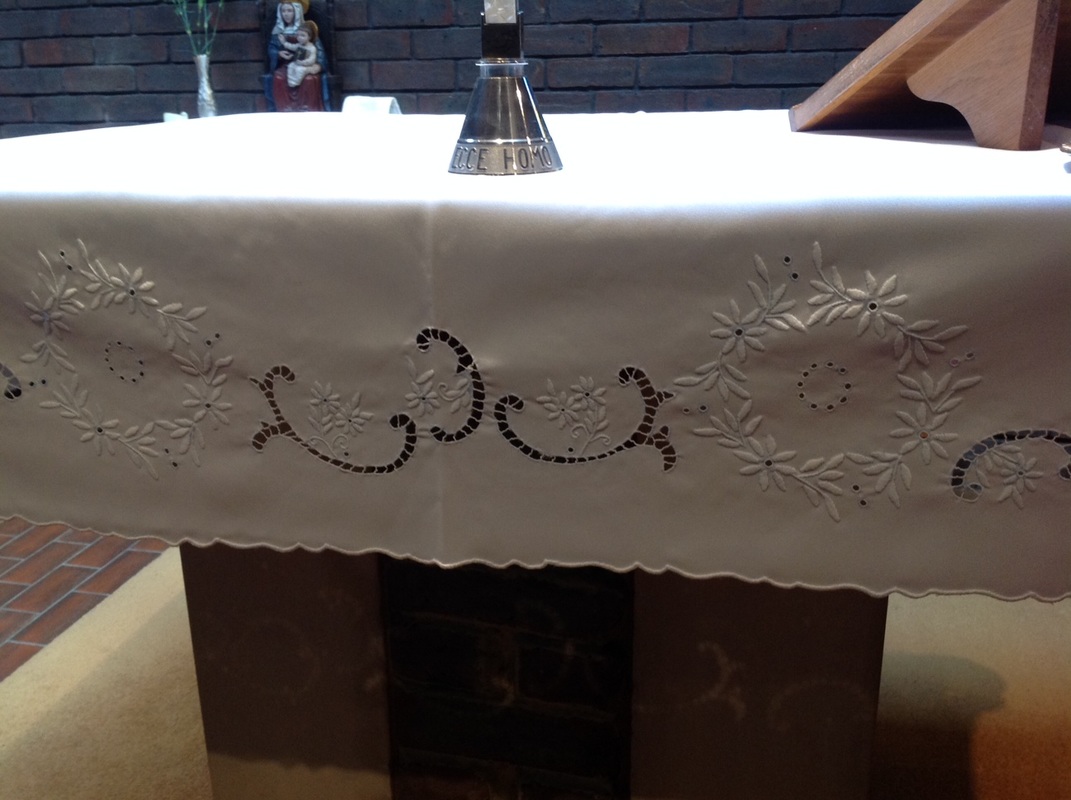Our Biblical Blog /'Examined Life'
|
SAINT AUGUSTINE'S, GRAHAME PARK
|
Now there is a beautiful Hungarian embroidery in our side-Chapel. Its white purity and orderly patterns of flower change the whole atmosphere. The embellishment is simple yet complex. Just like God’s laws in the book of Numbers (Chapter 6). On the surface, the Mosaic Law is overtly detailed and the rituals are worked out with almost painful precision. Yet the more we look for the centre and the origin of these humanly crafted words of the Bible ‒ the more of the simplicity and beauty of God’s Presence is revealed to us. Seeing these subtle concentric compositions on the altar-clothes has a healing and calming effect. It is worth reading the polemics between Jesus and “the religious experts” in a similar fashion. They refuse him because of blasphemy. “For a good work we stone thee not; but for blasphemy; and because that thou, being a man, makest thyself God” (John 10:33) Following our analogy, the more we contemplate Jesus’ story, the more credible of the Father’s presence in Him becomes. Also, his refusal by the Pharisees and scribes is highly symbolic. In their suspicion, mistrust accumulated through generations surfaces. This is a wounding blindness in history; this is the wound of History itself. Inertia. Overcoming this mistrust successfully, the transformation of our eyes happens. The Beauty of Christ as our Master is revealed to us. Even more, this Beauty shapes us from within. History itself, becomes, like the altar-cloth-embroidery. We are transformed into a new and lasting Meaning. 14.03.2016
0 Comments
Leave a Reply. |
Soliloquy
These are verbal Icons, expressions of how the world is seen from Saint Augustine's.. Archives
June 2023
Categories |
||||||||||||||||||||||||||||||||||||
Proudly powered by Weebly

 RSS Feed
RSS Feed